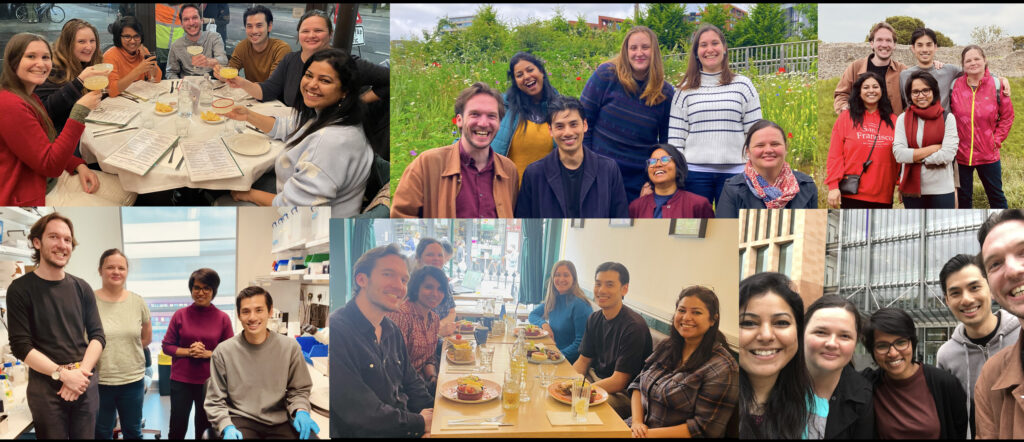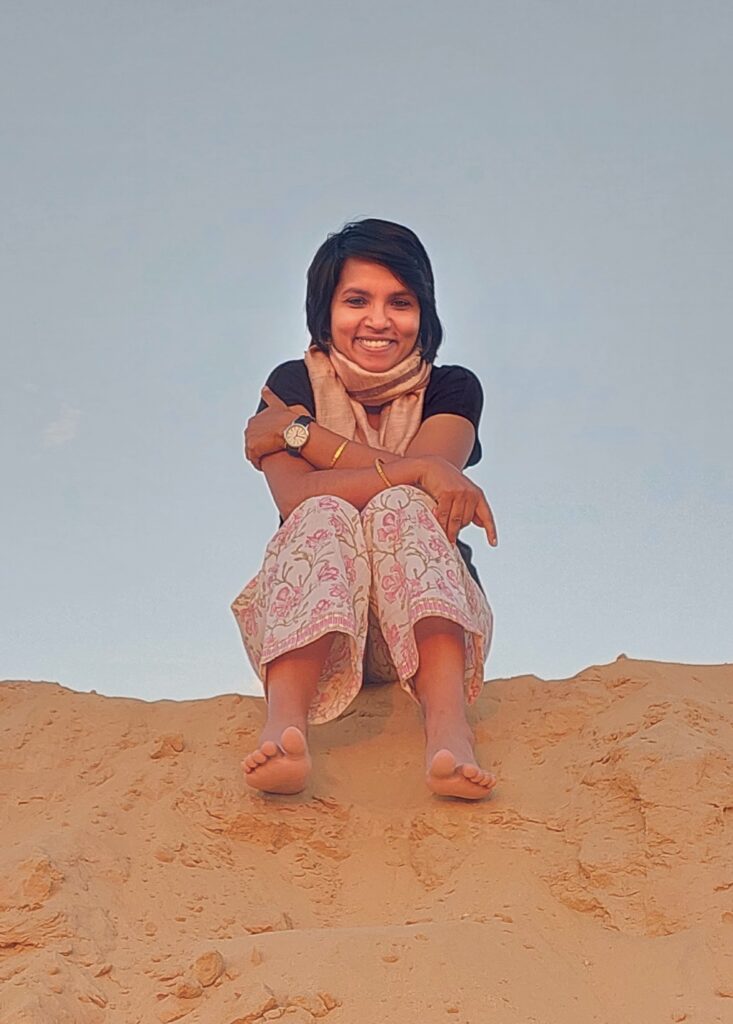Hello, Rashmi! Tell us about yourselves! Have you always wanted a career in science?
I am an accidental scientist. Growing up, science was not in my career plan as I didn’t even know that research existed as a career option. Research is a highly specialized field pursued by a small fraction of people, and unless you know someone who is working as a scientist, it is unlikely you would even realize such a profession exists. That’s why diverse role models are so important!
Anyway, here I am, thanks to a series of fortunate accidents that I turned into opportunities. My journey into science is a bit of a long winding tale, so if anybody is interested, they can read more about it here.
Now, I am a group leader/principal investigator at the Francis Crick Institute, London. We are a team of 6 people, from diverse backgrounds and nationalities, trying to address the fundamental question of how a functional beating heart is built during development.

What has been your research journey like? Can you tell me about the work you did during your PhD and postdoc?
I did my PhD in Alpha Yap’s lab at the University of Queensland. During this time, I focused on epithelial mechanics, specifically how cells acquire their shape and remain adhered to each other. While I enjoyed investigating these interactions, I often wondered how they play out in the complex setting of a whole living embryo. By the end of my PhD, I knew I wanted to analyse these cellular behaviours and processes within a complex, living organism. Zebrafish was the obvious choice to work with because of its tractability and accessibility. So, I decided to join Didier Stainier’s lab at Max Planck, where I worked on the fundamental aspects of heart morphogenesis.
And, when and how did you decide to take an independent position? Were there any challenges that you faced?
It might sound unusual, but I don’t recall a specific moment when I decided to pursue a group leader position as a career. In hindsight, this was probably for the best! If I had overanalysed and weighed my options too carefully, my tendency to overthink might have eroded my confidence and led me to choose a different path. I thoroughly enjoyed my time in Didier’s lab and loved what I was doing. After submitting my post-doc paper, I had a few weeks on my hand, and I was relatively free. So, I thought I’d test the water and started applying for jobs.
Starting my lab has been a real roller coaster—intense, thrilling, exhausting, and inspiring all at once! Reflecting on my first few years as a PI, I realize that no amount of preparation can fully equip you for the challenges and fun it brings. However, it’s worth it! It’s a privilege – building your team, getting excited and curious about fundamental aspects of how life works, and so on.
Can you share what your lab’s research focus is?
We are working to understand how functional organs are built during development—a fundamental question in developmental biology with important implications for tissue engineering and birth defects. To tackle this problem, we take a systems-level approach, by studying organogenesis, in toto, within a developing embryo. Our choice of the model system is a developing zebrafish heart, as it is highly accessible and tractable. Using a range of interdisciplinary tools, we aim to uncover how a simple linear heart tube transforms into a complex 3D organ that continues to beat throughout an organism’s life.
Are there any insights you would like to give early-career researchers who are planning to start a lab?
Starting a lab can be overwhelming, so be sure to take care of yourself and don’t hesitate to ask for help when you need it. People are always more than willing to offer advice and support. So, seek out mentors for different aspects of your work but also remember to trust your instincts. You will make mistakes in the beginning, learn from them and move on!
Here’s a practical tip: invest time early on in setting up what I would call the lab management infrastructure—things like plasmid inventories, data storage systems, standard protocols and lab manual. It may seem like a lot of effort and even a bit of a waste of time at first, but it will pay off significantly in the long run.
Finally, apart from your work in the lab, what keeps you excited? What is something that you do in your everyday life that keeps you going?

Traveling! I love exploring new places, new smells, sounds, and flavours. Also, I love being just out in the nature, so long walks and hiking. Recently I have taken up swimming and that’s keeping me busy!
—
Rashmi Priya’s lab at the Crick Institute is currently looking to hire interested PhDs and postdocs. She was recently awarded a major grant of over £2 million from the Wellcome Trust to support her research. You can learn more about her research here. You can also get in touch with her here.





